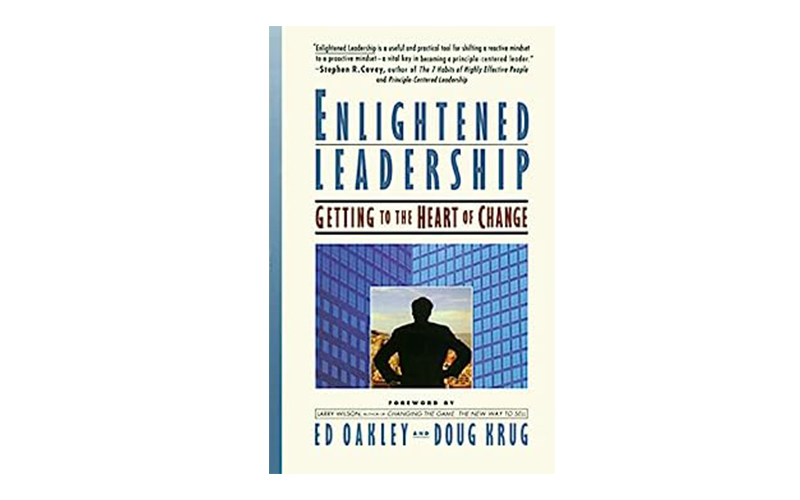Enlightened Leadership – Getting to the Heart of Change – Book Review
Greg L. Thomas
Ed Oakly and Doug Krug provide an understandable and clear definition of what they term “Enlightened Leadership.” This type of leadership approach attempts to deal with real underlying problems within organizations rather than their symptoms. It is founded on an approach that leaders must first or concurrently deal with the “mindset” or spirit of their people as well as changing processes or structures. Without positively dealing with attitudes and thinking styles among the organization all efforts of changing structures, systems or processes will meet great resistance and potential failure.
They formally define Enlightened Leadership as “the willingness and ability to draw the vision from their people and inspire and empower those people to do what it takes to bring the vision into reality. Indeed, Enlightened Leaders nurture and encourage their people to be open, creative, and innovative and find what it takes to achieve their shared objectives.” This type of leadership gets the “members of the organization to accept ownership for that vision as their own, thus developing the commitment to carry it through to completion.”
Much of the book is devoted to asking thought provoking questions in the authors hope that the reader can discover their own answers to an enhanced leadership approach. Much of the content in the book is a result of their personal experience working with their own clients and using their own observations. It is obviously full of valid and helpful information presented in an interesting and easy to read style.
Enlightened Leadership – Getting to the Heart of Change
Simon & Schuster, 1994 (265 pages in paperback)
Authors Ed Oakly and Doug Krug
ISBN 0-671-86675-3
weLEAD rating highly recommended
Quote of the Day
“A leader is one who knows the way, goes the way, and shows the way.”
— John Maxwell




